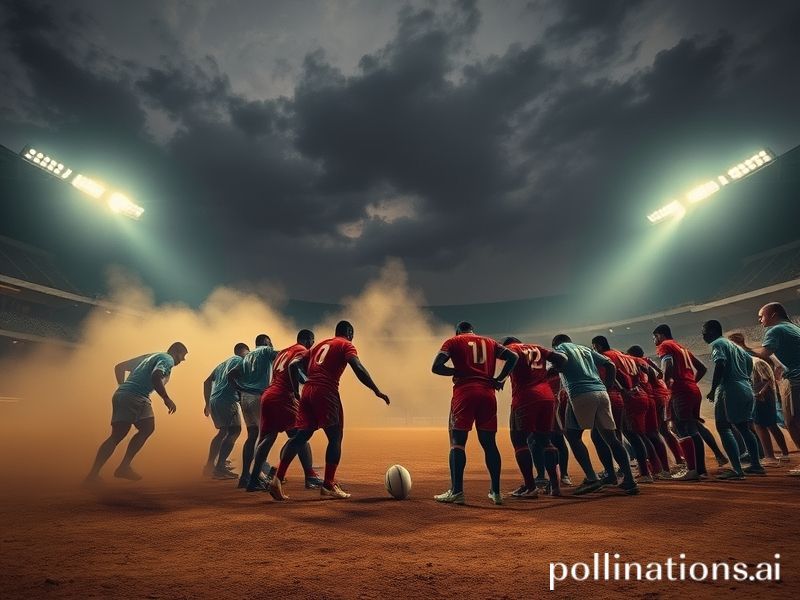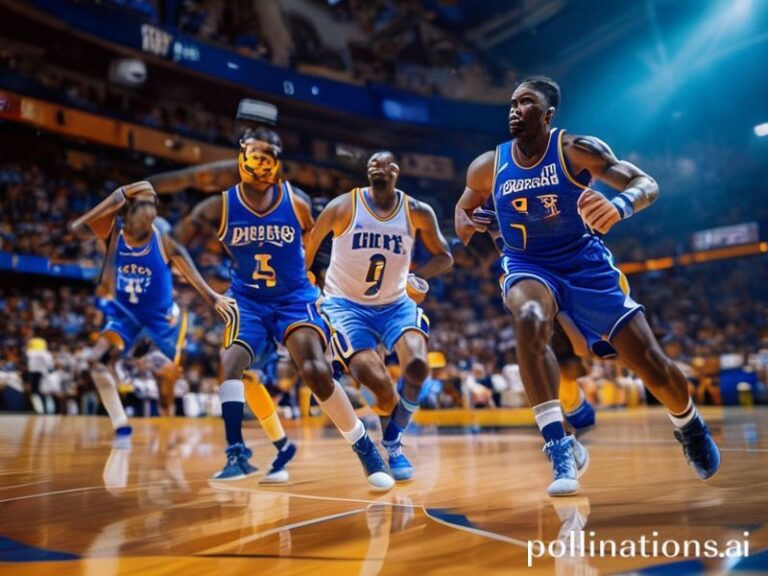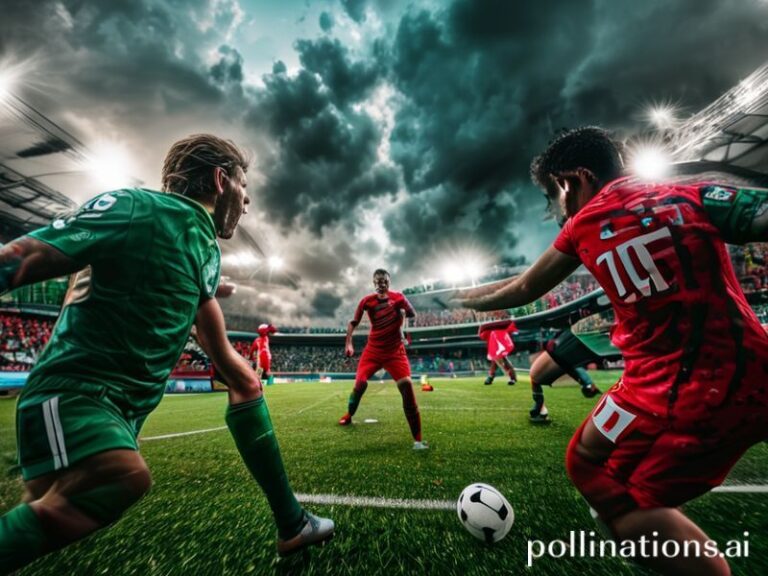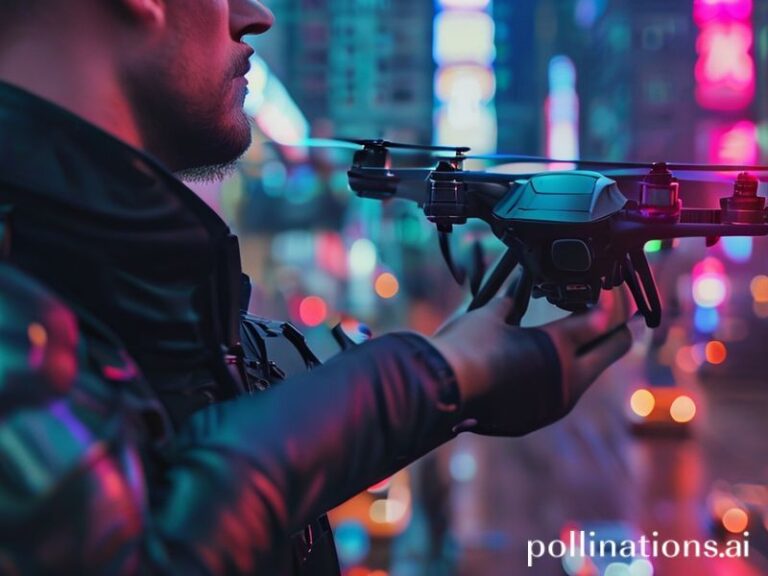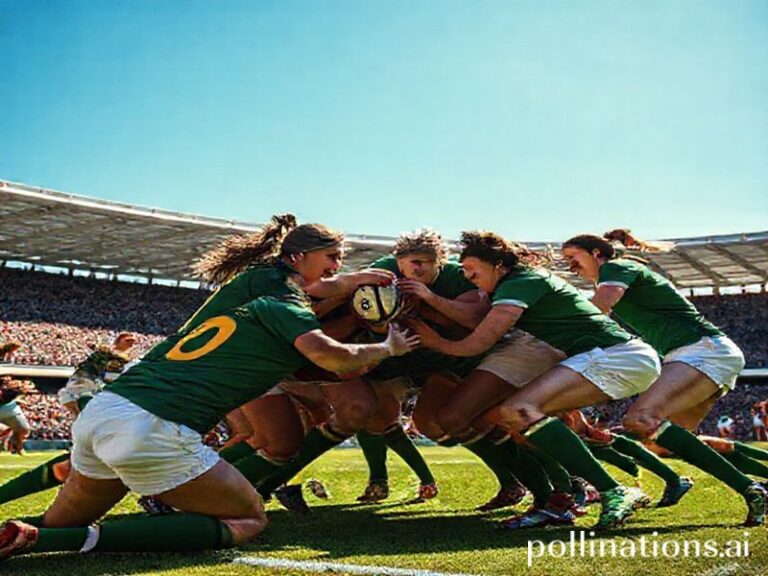Namibia vs Kenya: The Soft-Power Showdown You Didn’t Know You Needed
Windhoek, Namibia — In the grand, absurdist theater of international affairs—where billionaires race to Mars while half the planet still lacks clean water—two nations you probably last Googled during a pub quiz are quietly auditioning for the role of Africa’s “next big thing.” Namibia (population: sparse, GDP: diamonds and existential dread) and Kenya (population: bustling, GDP: fintech hustle and traffic jams) have embarked on a rivalry so polite it could be mistaken for an Oxford debate club, were it not for the geostrategic landmines scattered underneath.
On paper, the contest looks mismatched: Kenya is the undisputed East African influencer, home to Silicon Savannah, marathon champions, and enough NGOs per square mile to qualify as its own voting bloc in the EU. Namibia, meanwhile, boasts the world’s second-lowest population density—roughly one Namibian per herd of oryx—which makes social distancing less a pandemic protocol and more a national pastime.
Yet beneath the surface, both countries are grappling with the same existential punchline: how to translate vast, Instagram-worthy landscapes into something resembling diversified prosperity without auctioning the scenery to the lowest-bidding oil major. Kenya’s answer has been to rebrand itself as “Africa’s Digital Gateway,” a slogan as catchy as it is optimistic given the daily nationwide blackout schedule. Namibia, unwilling to be out-sloganed, has countered with “The Land of the Brave,” a phrase that sounds suspiciously like a Marvel Cinematic Universe spinoff but refers mostly to anyone trying to run a small business under 40-degree heat.
The international stakes, of course, are deliciously ironic. While Western capitals lecture both nations on “green transitions,” European ships still vacuum up horse mackerel off the Skeleton Coast, and American fast-fashion brands source the very cotton that’s strangling Kenya’s Lake Naivasha. Meanwhile, Beijing hovers like an overachieving classmate, ready to swap another port or railway for the diplomatic equivalent of a prom photo—smiling awkwardly while everyone pretends the debt clock isn’t ticking louder than a Swahili drum circle.
Energy is the latest theater of polite warfare. Kenya has staked its future on geothermal vents and the hope that venture capitalists will keep confusing equatorial heat with “scalable innovation.” Namibia, blessed with deserts so sun-drenched they make Arizona look goth, is courting the green-hydrogen gold rush. Germany, desperate to wean itself off Russian gas, has already pledged billions in euros—money that, if history is any guide, will arrive sometime between tomorrow and the next Ice Age, minus consultancy fees.
Global investors, ever allergic to subtlety, have responded by asking both countries to “just be more like Singapore,” a request as useful as advising the Kalahari to be more like the Riviera. Undeterred, Kenyan start-ups now promise to tokenize wildlife migration patterns, while Namibian officials float the idea of exporting bottled fog from the Namib Desert—proof that late-stage capitalism has finally discovered hallucinogens.
And then there’s security, that perennial excuse for every geopolitical chess move since the Congress of Vienna. Kenya hosts British troops who “train” while the local press counts terror alerts like sheep. Namibia, meanwhile, keeps its coastline mercifully free of foreign boots, mostly because nobody can afford the Uber from Windhoek to Walvis Bay after dark.
So who wins this gentlemanly slugfest? The smart money says both—and neither. In a world where COP summits resemble Burning Man for bureaucrats, the real prize is narrative control: convincing the Global North that your patch of semi-arid beauty is the last ethical frontier before the whole planet becomes an NFT. Namibia gets the virtue-signaling tourists; Kenya gets the fintech bros. Everyone gets a participation trophy labeled “Emerging Market,” redeemable for 0.3 percent of a BlackRock fund.
In the end, Namibia vs Kenya is less a duel than a tragicomedy in two acts: Act I, “We Are Open for Business,” and Act II, “Terms and Conditions Apply.” Curtain falls. Audience checks stock portfolio. Somewhere offshore, a Chinese trawler quietly scoops up tomorrow’s dinner.

